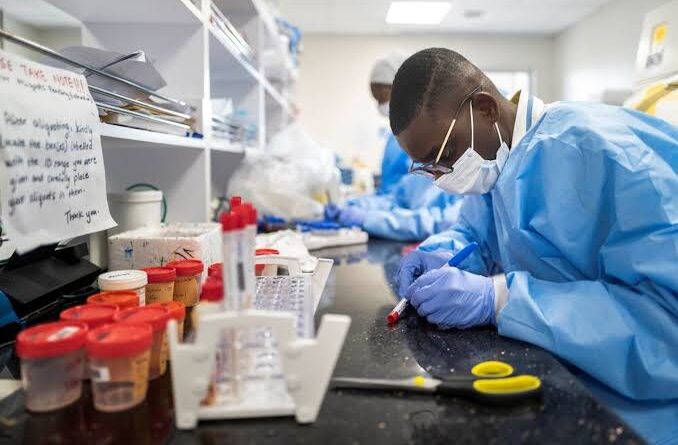Gates Foundation announces $40 million investment towards the production of mRNA vaccines in Africa.
Gates Foundation has announced a $40 million investment towards the production of mRNA vaccines in Africa
According to Bill Gates, Co-Chair of the Bill & Melinda Gates Foundation, a new investment has been made to increase access to mRNA research and vaccine production technology.
Gates made the announcement on Monday during the foundation’s 2023 Grand Challenges Annual Meeting in Senegal.
He claims that the investment will help low- and middle-income countries (LMICs) create high-quality, life-saving vaccines on a large scale.
Gates stated that the decision was based on lessons learnt from the foundation’s more than 20 years of working with vaccine manufacturers in LMICs, as well as the chance to capitalise on recent scientific developments.
He stated that the goal was to create low-cost, high-quality health solutions that would reach more people around the world.
Gate further stated that mRNA technology might be a game changer for a variety of infectious diseases, including tuberculosis, malaria, and Lassa fever, which disproportionately impact individuals in low-income countries.
“This new technology can significantly lower the costs of mRNA research and manufacturing and enable expanded access-helping to close critical gaps,” Gates said in a statement.
Messenger ribonucleic acid (mRNA) vaccines stimulate the immune system to produce antibodies. Antibodies are proteins found in the body that help the body fight germs and viruses that cause disease.
Gates announced $40 million in financing to expand access to Quantoom Biosciences’ low-cost mRNA research and production platform, which was established under an early-phase Grand Challenges grant awarded to Univercells.
He stated that the Institut Pasteur de Dakar (IPD) and Biovac, two research institutes in Senegal and South Africa with vaccine production capabilities, will each get $5 million to acquire the technology and produce locally relevant vaccines.
To enhance the technology and minimise commercialization costs, Gates said the foundation would also provide Quantoom Biosciences with $20 million to ensure LMICs benefit from next-generation mRNA health tools.
Gates stated that the organisation would award another $10 million to unnamed LMIC vaccine makers.
He also stated that the foundation’s earlier investment in mRNA manufacturing technology was worth $55 million.
mRNA vaccines, he claims, have simpler research and production processes than regular vaccines.
Expanding access to this next-generation technology, according to Gates, could help nations like Senegal and South Africa gain autonomy in discovering and developing low-cost, high-quality vaccines for illnesses like malaria and tuberculosis that align with national health goals.
Dr Muhammad Ali Pate, Nigeria’s Coordinating Minister of Health and Social Welfare and a global vaccine expert, stated that placing breakthrough mRNA technology in the hands of researchers and producers in Africa and around the world will ensure that more people benefit from next-generation vaccines.
“This collaboration is an encouraging step that will increase access to critical health technologies and help African countries develop vaccines that meet the needs of their people,” Pate said in a statement.
Similarly, Dr. Amadou Sall, Chief Executive Officer of IPD, stated that increasing the organization’s capacity to identify and manufacture affordable mRNA vaccines in Africa was a vital and necessary step towards the region’s vaccine self-reliance.
“We welcome this new funding, which will promote the development of lifesaving technologies on the continent while also contributing to global health security by expanding the supply and access to vaccines—allowing us to achieve greater health equity worldwide,” Sall stated in a press release.
Furthermore, Morena Makhoana, CEO of Biovac, stated that innovation can be revolutionary, but only if it reaches those who need it the most.
“This collaboration will contribute to closing critical gaps in access to promising mRNA vaccines against diseases that disproportionately affect the world’s poor.”
It will also help us in our aim to build end-to-end vaccine manufacturing capacity in Africa for global supply,” Makhoana said.
Similarly, José Castillo, CEO of Quantoom Biosciences, stated that developing new vaccines is expensive, time-consuming, and focused in high-income countries.
According to Castillo, Quantoom’s modular mRNA technology tackles key bottlenecks in current mRNA research and manufacturing technologies, making it easier to use and less expensive.
When compared to traditional mRNA technology, he claims that Quantoom’s platform might reduce the cost of producing a vaccine by more than 50%.
He added that it might also considerably minimise the demand for highly qualified experts, which is still a barrier to vaccine production in Africa and elsewhere, while maintaining or even improving product quality.
“We’re thrilled to partner with IPD and Biovac to scale our technology in Senegal and South Africa and help increase access to novel mRNA vaccines—one of medicine’s most promising new tools.”
The additional financing for Quantoom builds on a grant awarded to Univercells in 2016 in response to a Grand Challenges call for innovative breakthroughs in vaccine manufacture.
The Univercells plan centred on creating modular engineering principles that would allow for decentralised, small-footprint vaccine manufacturing.
IPD intends to begin producing key measles and rubella vaccines utilising Univercells’ original vaccine manufacturing technology, thereby increasing the region’s capacity to offer routine vaccination programmes.




